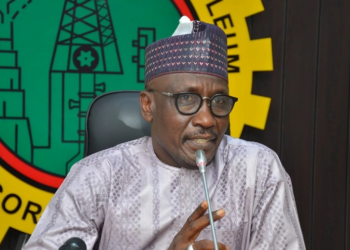The Federal government is to spend a total of N3.75 trillion as personnel costs for the MDAs (Ministries, Departments and Agencies) and GOEs (Government Owned Enterprises) in the 2021 fiscal year, representing an increase of 23% over the revised budget of 2020.
According to the 2021 FG budget recently passed by the National Assembly and formally presented by the Honorable Minister for Finance, Dr. Zainab Shamsuna Ahmed, the personnel costs account for 66% of the Recurrent (Non-Debt) expenditure in 2021 as against 62% recorded in the revised budget of 2020.
The personnel costs for MDAs and GOEs increased by 8% and 220% respectively in 2021, with a combined growth of 23% – moving from N3.05 trillion in 2020 to N3.75 trillion in 2021.
Other key highlights
- The Overheads in 2021 for MDAs increased by 34% and by 248% for the GOEs.
- Expenditure relating to pensions, gratuities and retirees benefits in 2021 declined by 6%.
- Debt service increased by 17% from N2.7trillion in 2020 to N3.1trillion in 2021.
Why Nigeria should cut cost of governance
- The high cost of governance in Nigeria has become a very disturbing phenomenon and requires immediate redress.
- The need to address this surge has become pertinent as the Minister of finance has persistently raised concerns over the insufficient revenue, as the major problem in the effective implementation of the federal budgets.
- It is sad to note that despite the concerns about revenue shortfall, not much has been done by the authorities to address this unsustainable level of cost of governance, which invariably has not reduced despite these clearly identified revenue challenges.
- The appropriate structure of government is one major issue that needs to be addressed in reducing the high cost of governance in Nigeria. Hence the bicameral system of our legislature, for instance, needs to be critically examined. Given our current economic circumstances, the important question is whether or not the country can afford to continue with this arrangement when some developing countries have modified their parliamentary structures to suit their peculiar circumstances.
- There appears to be the need for the country to consider reducing the number of members of the National Assembly by having only one House, to reduce membership and thus cut high costs of maintaining them and their retinue of aides.
- It is still very possible to operate the bicameral system by placing the legislators on part-time basis – to enhance cost reduction. Except the country considers restructuring along these lines, reducing the cost of governance will remain a mirage. The executive arm of government is the main culprit in incurring excessive costs in governance.
- There’s a lot of wastage at different parastatals and government agencies, ranging from the bogus and security vote allowances to the unimaginable expenditures in maintaining the bureaucracy, utilities, and personal aides.
- At the ministries, departments and agencies (MDAs) of government where the ministers, permanent secretaries, and director-generals hold sway; it is a routine merry-go-round with several foreign trips, poor public procurement practices and entrenched corruption that results in poor outcomes for the national economy.
- Many of these men and women at the helm of affairs in these arms of the government allegedly turn out to be the owners of choice estates in the federal capital city and many parts of Nigeria and the world, leaving office as multibillionaires while the national economy continues in a state of degradation.
- Attitudinally, the government needs to convince the public that it is serious in reducing the cost of governance by changing its ways in the incurring of overheads. Though this applies to the three arms of government, it is particularly important that the executive arm takes lead as it controls about 90% of all public expenditures.






















